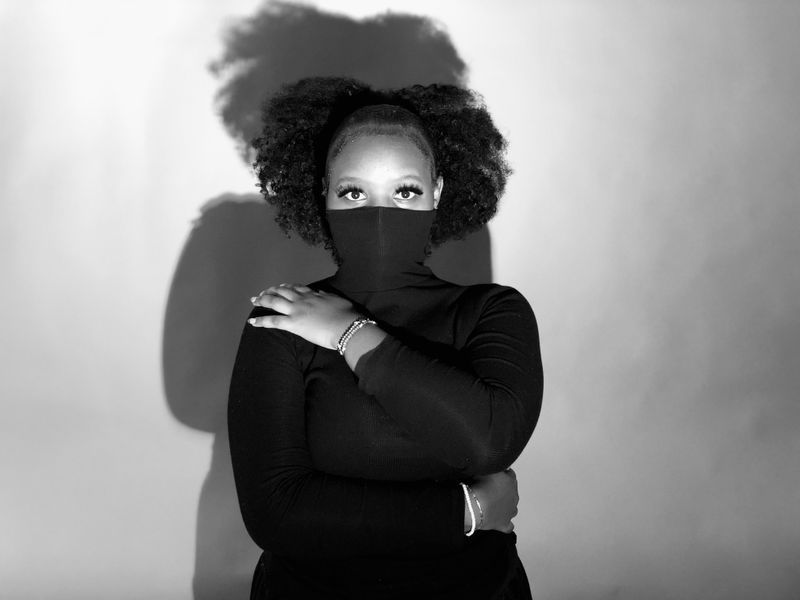We Are America
My Unseen Battle
By Joylyn

Lowell High School, Lowell, Massachusetts
I was in third grade. I had settled in America two years earlier, having traveled with my family from Kenya. Before starting school in the United States, my dad expressed the need for the rest of my family and I to learn and speak English. There was pressure for me to be American, to have an American accent. Swahili was unacceptable in the house. I spent hours sitting in front of the TV watching and reading the subtitles and listening to the pronunciation of words and phrases. But attending school taught me more English than the TV could.
School also taught me that I was different. Whenever I spoke, kids would make fun of me, mock me and invade my personal space to tell me how bad my English was. The teachers avoided talking to me because neither of us understood each other. I felt alone and small, no one wanted to hear me, so I made it my goal to have an American accent. I wanted to no longer be picked out of the crowd. So as my classmates would speak, I stayed silent and in class when they would read, I re-read the sentences in my mind.
Over time my English improved, and I noticed a shift. When conversing, I was finally understood. I didn’t have to repeat myself a few times. When asked to read in class I was no longer frightened at the possible chatter or the giggles of my fellow classmates. By third grade I felt normal, like a chameleon I blended in. I was officially an American. I rested in the illusion that my accent had withered away. I took off my armor, for I was safe from the constant comments about my accent.
My third grade teacher was a tall white man with gray hair and a youthful face. His benevolent nature opened a door for me to feel safe, heard and accepted. But then one afternoon, my teacher was talking about diversity in America. All of a sudden he looked at me with a smile, and said, “and we have people who have accents like someone in our class, Joylyn.” My heart dropped to my stomach. How could he announce such a thing? A few girls giggled, some nodded their heads. The attention was on me. Unwanted attention. I felt small.
I started to breathe quickly, my hands began to shake, although no one could see. I didn't know what to do, except to ”smile” back at him, turn my head and look down. That day I felt like an outcast.
What he didn’t know, what my classmates didn’t know, what none of them could know, was that in addition to my years working on English and my accent, when I was just four years old I had struggled with a severe stuttering. It would take me more than a minute to utter a single word. It felt as if someone was choking the life out of my esophagus withholding the words to come out. Through my mother’s fervent prayers, after some time I stopped stuttering.
Eventually as I grew older my accent did wither, but it came at a price. Losing my accent was accompanied by losing my fluency in Swahili. This meant losing a part of what connected me with my motherland. This meant that every time I visited relatives in Kenya, my lack of fluency in Swahili became the discussion.
As a kid, I never believed that my voice should be heard or would be accepted if I spoke. I would find myself not speaking, not communicating. I had to find the confidence to speak. It took me time to understand the immense power a voice carries and the impact it has. My struggle to speak and to be heard has taught me to be bold and to endure when my confidence is shaken. It has taught me that my voice is a weapon to bring forth freedom, justice and comfort.
© Joylyn. All rights reserved. If you are interested in quoting this story, contact the national team and we can put you in touch with the author’s teacher.